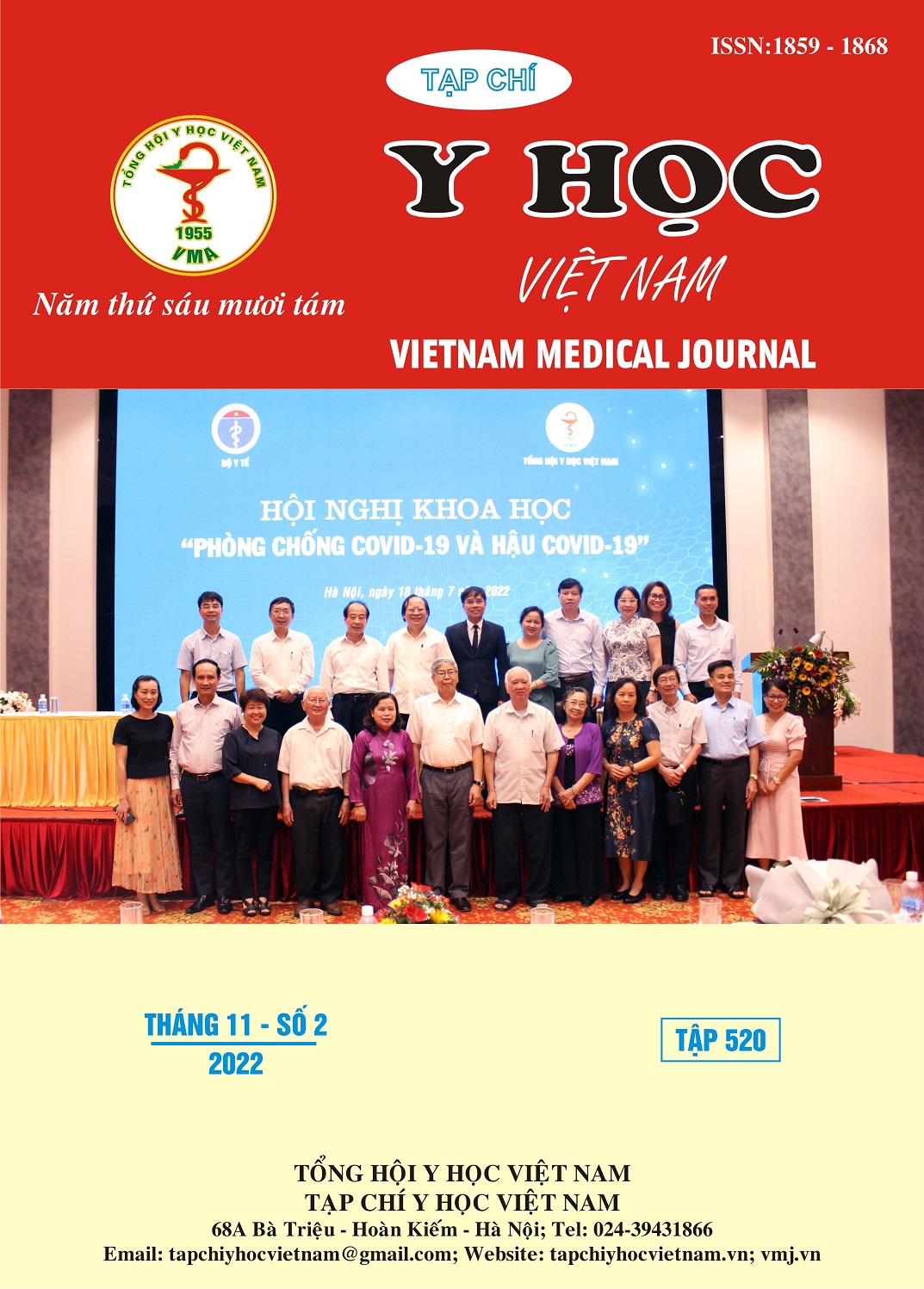ASSESSMENT HARMONIZATION PROBABILITY OF ASSAY: CARCINOEMBRYONIC ANTIGEN, CANCER ANTIGEN 19-9, PROSTATE SPECIFIC ANTIGEN BY RIQAS PROGRAM
Main Article Content
Abstract
Background: Tumor marker testing is increasingly important in the early diagnosis and management of cancer. however, a substance measured by different methods or equipments will give different results. Meanwhile, clinical decisions largely depend on test results, and patients expect that different laboratories using different methods, will give the same results. Therefore, standardizing and harmonization tumor marker assay in particular and all tests, in general, is a necessary issue today to minimize the difference between methods, facilitate laboratories to receive each other's results and agree on the application of good clinical practice guidelines; ensure patient safety and reduce healthcare costs. Objects: database construction for harmonization of tumor marker assay: carcinoembryonic antigen (CEA), cancer antigen 19-9 (CA 19-9), prostate specific antigen (PSA). Research method: The CEA, CA 19-9, PSA external test results reports from the RIQAS external quality assessment were collected at the University of Medical Center, branch 2 from 2018 to 2021. The retrospective study. Results: there is a statistically significant difference (p < 0.05) in concentration and bias between the participating methods. CA 19-9 is the assay with the greatest bias and the worst consensus (CV > 40%). CEA and PSA assays have lower bias, better consensus (mean CV of 11.85% and 16.55%), and most within-methods had a CV < 10%. However, the consensus of these three cancer marker assays tends to improve from 2018 to 2021. Conclusion: all three tumor marker tests have differences between methods, especially CA 19-9. CA 19-9 and CEA assays need to be standardized, and PSA assay should be harmonized to minimize variation between methods.
Article Details
Keywords
harmonization, tumor marker, CA 19-9, CEA, PSA.
References
2. Foj, L., et al. Variability of assay methods for total and free PSA after WHO standardization, Tumour Biol, 2014. 35(3): 1867-73.
3. Garrido, M. M., et al. Comparison of Three Assays for Total and Free PSA Using Hybritech and WHO Calibrations, In Vivo, 2021. 35(6): 3431-3439.
4. La'ulu, S. L. and Roberts, W. L. Performance characteristics of five automated CA 19-9 assays, Am J Clin Pathol, 2007. 127(3): 436-40.
5. Miller, W. G. and Greenberg, N. Harmonization and Standardization: Where Are We Now?, J Appl Lab Med, 2021. 6(2): 510-521.
6. Singh, B., et al. Application of sigma metrics for the assessment of quality assurance in clinical biochemistry laboratory in India: a pilot study, Indian J Clin Biochem, 2011. 26(2): 131-5.
7. Stephan, C., et al. Interchangeability of measurements of total and free prostate-specific antigen in serum with 5 frequently used assay combinations: an update, Clin Chem, 2006. 52(1): 59-64.
8. Sturgeon, C. Standardization of tumor markers - priorities identified through external quality assessment, Scand J Clin Lab Invest Suppl, 2016. 245: S94-9.
9. Zhang, K., et al. A long way to go for the harmonization of four immunoassays for carcinoembryonic antigen, Clin Chim Acta, 2016. 454:15-9.


